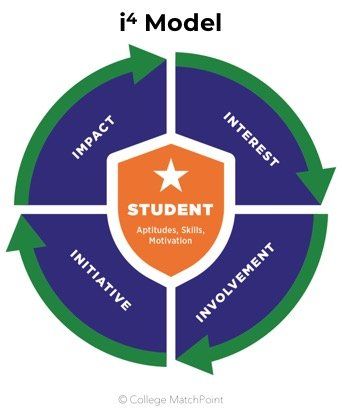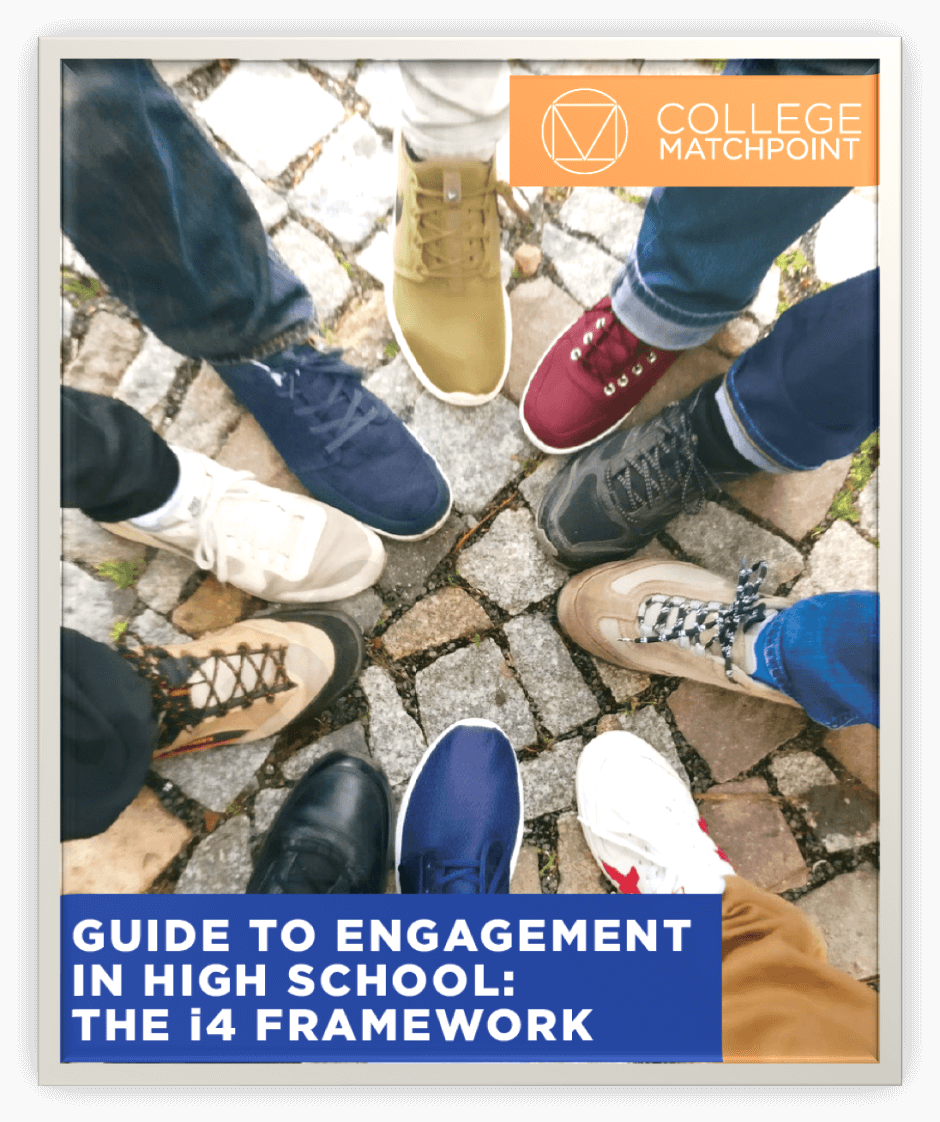According to recent research from Gallup, "Engaged students are 2.5 times more likely to say that they get excellent grades and do well in school, and they are 4.5 times more likely to be hopeful about the future than their actively disengaged peers." To increase that engagement, we've developed a model that we call the i4 framework. Our i4 framework is a structured way for students to spark—and increase—their engagement in areas of interest, by increasing involvement, taking more initiative, and measuring the impact.
For younger students who haven't yet identified a specific area of interest, we've been inspired by the authors of Designing Your Life, who encourage experiments: trying new activities, community service, jobs, or other extracurricular opportunities.
Less traditional activities—like building a computer, designing and creating clothing, writing original music or fiction, or researching and sharing strategies to protect the bee population—are great ways to demonstrate a student's unique skills, talents, and interests. With a growth mindset, your student should be able to try new things without feeling discouraged. Of course, if after giving it a try, your student realizes an activity is not for them, they should take that information into account and try something different. It's this type of experimenting in the first few years of high school that will eventually help your student narrow their interests.
Once a student finds something that truly interests them, they can deepen their involvement. One way to do this is by what Designing Your Life authors call learning to ask for directions: Students must learn to ask for help and utilize mentors when figuring out how they might take an interest to the next level.
For example, if your student has developed an interest in beekeeping, she might research local biologists studying bees, write an email to one asking some questions, and perhaps even ask if a research internship is available. Becoming a self-advocate and knowing who to ask for help is a critical life skill, and it will help students experiment more and engage more deeply with their interests.
Of course, it's up to you to help your student experiment and engage. Here are a few things you might do.




